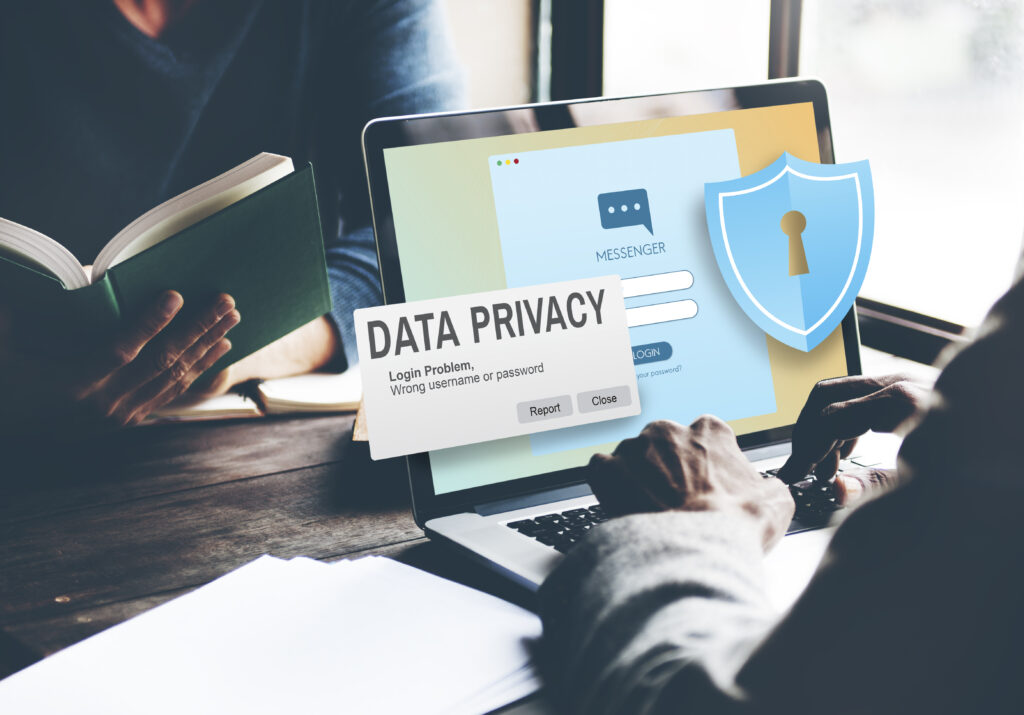Staying secure online is a challenge for all of us in this increasingly connected digital age. As our personal data spreads across countless websites and apps, we must remain vigilant to protect our privacy. This article will explore the latest regulations and technologies to safeguard your personal information. You will learn about new data privacy laws in the UK and EU and innovative security solutions that can help keep your data safe. We will provide practical tips on managing your privacy settings and being selective about what information you share. With cyber threats only intensifying, understanding data privacy risks is essential. This article will empower you to take control of your digital footprint.
The Importance of Data Privacy in a Connected World

New Regulations
Governments worldwide have implemented regulations like GDPR and CCPA to strengthen data privacy rights. These laws give individuals more control over their personal information and restrict how companies collect and share data. While regulatory compliance can be complex for businesses, consumers benefit from increased transparency and consent requirements.
Emerging Technologies
New technologies are also helping to protect data privacy. Blockchain, for example, provides an immutable record of digital transactions, allowing consumers to maintain ownership of their data. Differential privacy uses mathematical techniques to extract useful insights from data sets without compromising individual privacy. Homomorphic encryption enables computation on encrypted data, performing useful operations without accessing private information.
A Shared Responsibility
In an increasingly connected world, data privacy depends on the shared responsibility of individuals, companies, and policymakers. Consumers who make knowledgeable choices can ensure proper use of data and take steps to strengthen their privacy practices. Businesses must follow all applicable laws and regulations, limit data collection to what is necessary, and be transparent in gathering and sharing personal information. Lawmakers need to enact policies that balance privacy rights, innovation, and the free flow of information.
Protecting data privacy in a digital society requires vigilance and a commitment from all parties to ethical data use. When individuals, businesses, and governments work together toward this same goal, people can enjoy the benefits of connectivity with confidence based on how they handle the information. They are overall, prioritizing data privacy results in a more just, equitable, and trustworthy digital experience for all.
Key Data Privacy Challenges and Risks
Lack of Transparency and Control
In today’s data-driven world, the collection and sharing of personal information is increasing in complex ways. Individuals often do not clearly understand the use of their data’s hows or whys to exercise control over their information. This lack of transparency and control poses risks to privacy.
Data Vulnerabilities and Security Threats
As more personal data is stored and shared digitally, it becomes an attractive target for cybercriminals. Data breaches, hacking incidents, and other security failures frequently expose individuals’ private information. Once data has been compromised, it is difficult to contain and can be used for identity theft, financial fraud, and other malicious purposes.
Emerging Technologies Outpace Regulations
Modern technologies like artificial intelligence, biometric tracking, and smart devices are being adopted rapidly, but regulations and policies aimed at governing data use typically lag behind. This gap between technology innovation and policy leaves room for privacy abuses and unintended data misuse.
Lack of Harmonised Laws
Data privacy regulations differ significantly between countries and regions. Multinational companies must navigate a complex web of laws, and individuals have varying levels of protection depending on location. A lack of harmonized, comprehensive privacy laws makes it difficult to uphold strong, consistent data protection standards on a global scale.
Overall, privacy in today’s digital world faces no shortage of challenges and risks. However, as awareness increases regarding these issues and the development of new regulations, technologies, and best practices are helping work towards a future with greater transparency, security, and personal data control. For progress to occur, make sure continuous vigilance and a sharing of commitment to privacy and ethics is in continuous supply.
Data Privacy Solutions and Emerging Technologies
Privacy Regulations and Laws
To protect individuals’ personal data, governments have implemented regulations like the General Data Protection Regulation (GDPR) in the European Union and the California Consumer Privacy Act (CCPA) in the United States. These laws give users more control over their data and restrict how companies can collect and share personal information. Organizations that fail to comply with these regulations face significant financial penalties.
Privacy Enhancing Technologies
Emerging technologies aim to put users in control of their data. Differential privacy uses mathematical techniques to anonymize data sets to avoid identifying individuals. Federated learning allows machine learning models to be trained on decentralized data sets without aggregating the data in one place. And privacy-preserving record linkage connects personal records across data sets without revealing individuals’ identities.
Data Minimization and Anonymization
Some of the most effective privacy solutions are also the simplest. Data minimization means collecting and sharing only the minimum amount of personal information needed for a specific purpose. Anonymization strips data of identifying details so it cant link to a particular individual. These techniques reduce privacy risks and help companies use data responsibly while enabling valuable insights and innovations.
User Consent and Transparency
Ultimately, individuals must have meaningful choices and control regarding the usage of their data. Transparent privacy policies, consent mechanisms, and data access tools are necessary so that users understand on the collection, sharing and storing of their information. We need to empower people so they can choose which data they want to share and which companies they trust to handle it responsibly. With users’ informed consent and participation, connected technologies can enhance privacy rather than diminish it.
In summary, regulations, privacy-enhancing technologies, data minimization, and user consent all have important roles to play in balancing innovation and privacy in an increasingly digital world. By adopting a people-centric approach focused on transparency, choice, and trust, companies can tap into the benefits of data while upholding individuals’ rights over their information. The future needs not be a choice between privacy and progress but rather a choice of how to achieve both.
Data Privacy Regulations and Compliance
Data privacy regulations exist to protect individuals’ personal information in today’s increasingly connected digital world. The enaction of these laws around the globe enforces safe data handling practices:-
GDPR
- The General Data Protection Regulation (GDPR) is a European Union law that sets guidelines for processing and collecting personal data. The GDPR applies to any organization that handles EU citizens’ personal data, regardless of the organization’s location. Compliance requires obtaining explicit consent for data processing, notifying individuals about data breaches, and avoiding overly broad data collection. Organizations must also allow EU citizens to access, correct, delete, and object to processing their personal data.
CCPA
- The California Consumer Privacy Act (CCPA) gives California residents more control over their personal information. The CCPA requires companies to disclose what personal data they collect and sell about individuals. It also gives consumers the right to opt out of the sale of their personal information, access their data, and request its deletion. The law applies to for-profit businesses that operate in California and handle Californians’ personal data.
Other Privacy Laws
- The Personal Information Protection and Electronic Documents Act (PIPEDA) in Canada, the Privacy Act 1988 in Australia, and the Protection of Personal Information Act (POPIA) in South Africa. Most require transparency in data handling, restrict collecting and using personal data, and give individuals certain rights regarding their information.
- Organizations must implement strong data governance programs to comply with data privacy regulations. This includes conducting audits to identify what personal data they hold, where it resides, and how they will use it. They must also establish processes for responding to individuals’ requests to access, correct, or delete their personal data. As such, they must implement robust security measures to protect personal data from unauthorized access, loss, or theft.
- Staying up-to-date with data privacy laws and maintaining compliance helps build trust between organizations and their customers. It also reduces the risk of financial penalties and damage to reputation in the event of a data breach or privacy violation. With data volumes skyrocketing, data privacy will only become more crucial. The organizations that prioritize it will be best positioned to succeed.
Best Practises for Protecting Personal Data
As connected technologies become increasingly integrated into our daily lives, safeguarding personal information is critically important. Several steps individuals can take to better protect their data privacy are listed below.
Monitor connected devices
- With the proliferation of smart home devices, fitness trackers, and other connected technologies, personal data can be collected and shared in the background without your knowledge or consent. Routinely check the privacy policies and data-sharing practices of any connected devices you own to understand how your information may be collected or shared. Turn off any data-sharing options you do not wish to enable.
Use strong and unique passwords.
- Reusing the same password across multiple websites and accounts puts your personal data at risk if any single account is compromised. Use a password manager to generate strong, unique passwords for all accounts and enable two-factor authentication whenever possible. Two-factor authentication adds an extra layer of security to your accounts.
Be cautious of public Wi-Fi networks
- Public Wi-Fi networks are not secure and allow others to see your online activity and personal information. Avoid conducting sensitive activities like online banking, shopping, or sharing private information while connected to public Wi-Fi. If you must use a public network, enable a VPN (virtual private network) to encrypt your connection.
Review privacy policies and stay up-to-date
- Carefully review the privacy policies of websites, apps, and services before providing your personal information or enabling data-sharing options. Policies frequently change, so re-review policies regularly to understand exactly how your data may be collected, used, or shared. Enable privacy controls and opt out of data sharing whenever possible.
- Staying vigilant about data privacy in an increasingly connected world requires ongoing effort and awareness. By monitoring connected devices, using strong passwords, being cautious on public Wi-Fi, and reviewing privacy policies regularly, individuals can help better protect their personal data and maintain control of how their information is collected and shared. However, as technology and data regulations evolve, continuous learning and adaptation will be needed to keep up with threats to data privacy.
The Verdict?
As we move forward into an increasingly digitized world, individuals must take an active role in protecting their personal data. While regulations like GDPR demonstrate a step in the right direction, true change must be driven by an informed populace who demand their right to privacy be respected. Educate yourself on new technologies that safeguard data and be selective when providing personal details online. We are all responsible for understanding how our information is used and taking proactive measures to control our digital footprint. With awareness and vigilance, we can work collectively to ensure our basic right to privacy is upheld even as we become more interconnected. The path ahead requires perseverance, but the destination is a society where individuals are empowered to manage their data as they see fit.
More Stories
Qwen3: Alibaba’s Open-Source AI Pushes the Boundaries of Hybrid Reasoning
Alibaba’s open-source model, Qwen3, marks major progress in hybrid reasoning. This new model blends traditional AI with dynamic reasoning, creating a flexible and efficient tool for developers globally.
Pony.ai Accelerates Toward Profitability with Strategic Fleet Expansion and Cost Optimization
Pony.ai is making strategic moves to accelerate its path toward profitability. As you navigate the complexities of this cutting-edge industry, it is crucial to understand how this Chinese company positions itself for success.
Reels Remix: Instagram’s Blend Turns DMs into Shared Discovery Zones
Have you ever wished you could explore Instagram Reels with your friends, discovering content that appeals to both of your interests?
Opera Mini Empowers 100M Users with Free AI Assistant, Bridging the Digital Divide
Notably, the company integrated the AI assistant Aria into Opera Mini. Now, users gain advanced artificial intelligence access—no matter their location or internet quality. This strategic move empowers more than 100 million users globally. Particularly, it helps people in areas where high data costs previously limited online participation.
Taiwan Secures the Skies: Chunghwa Telecom and Astranis Forge Satellite Shield
By partnering with U.S.-based Astranis, the company is set to launch Taiwan’s first dedicated communications satellite. This bold initiative not only demonstrates Taiwan’s commitment to technological advancement but also highlights the growing importance of satellite technology in ensuring network resilience.
ChatGPT o3 Stuns with Real-World Image Recognition, Ignites Privacy Fears
As you explore the latest advancements in artificial intelligence, you may find yourself both amazed and concerned by the capabilities...


